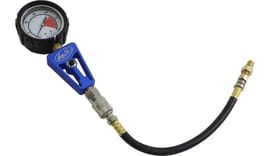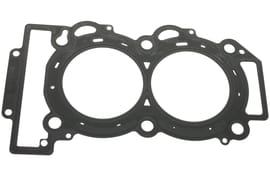How to Compression Test a Polaris ATV
Low compression is a sign of serious issues within your ATV's engine. A lack of performance in an ATV can be caused by several issues, and a compression test helps diagnose problems with the engine.
Watch the video above and follow the steps below to learn how to do a compression test on a Polaris Sportsman 850 XP.
PRO TIP: Check out our Polaris Sportsman XP 850 cylinder head parts diagram for additional reference.
Tools Needed - Polaris Sportsman ATV Compression Test
- Compression tester
- Torx bit socket set
- Magnet tool
Preparing ATV for a Compression Test
Step 1. Run the engine for a few minutes to get it warm.
Step 2. Remove the seat by pulling straight up on the back of the seat so it'll pop loose.
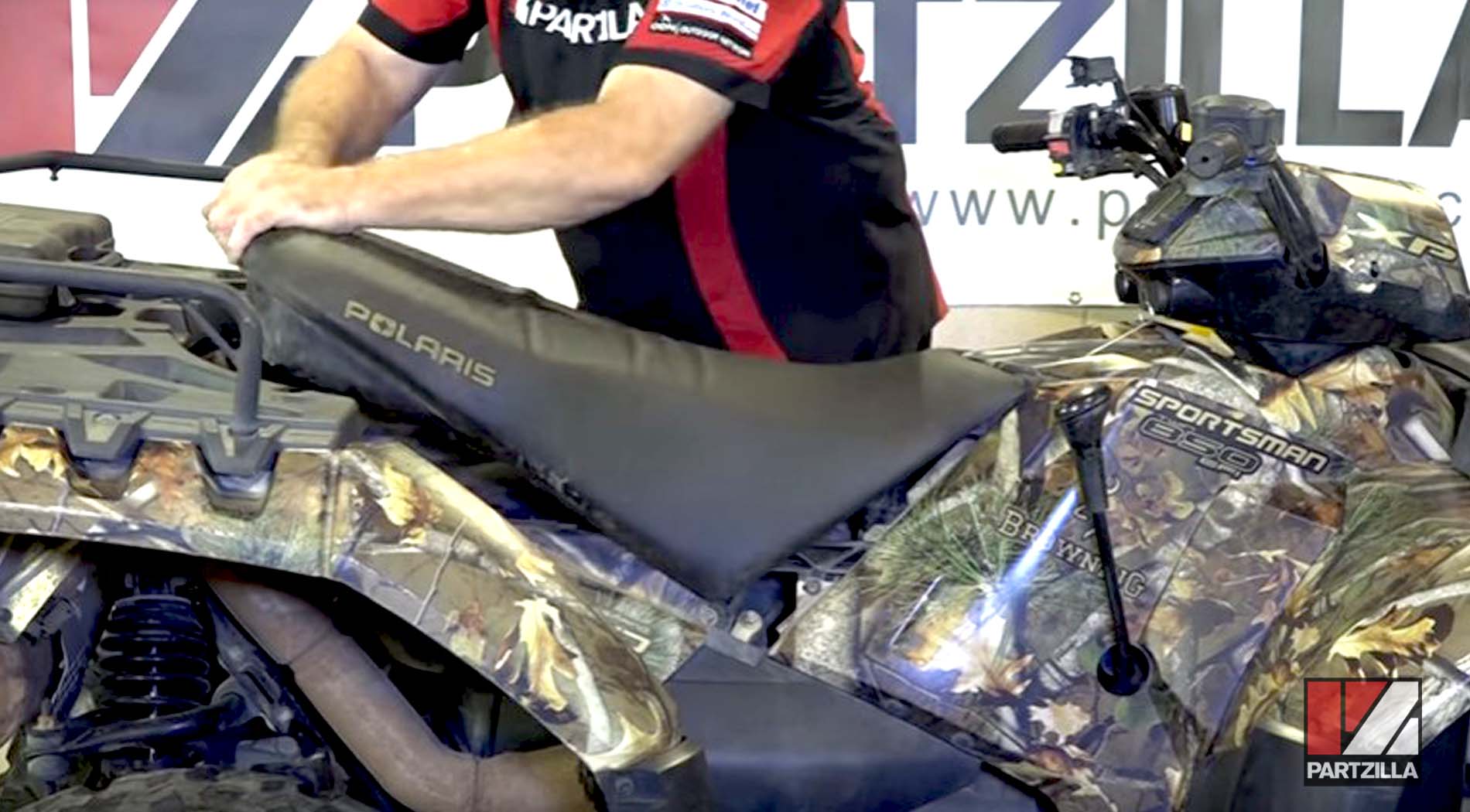
Step 3. Use a T27 from a Torx bit socket set to remove the Torx bolts holding the right-hand side panel in place over the engine.
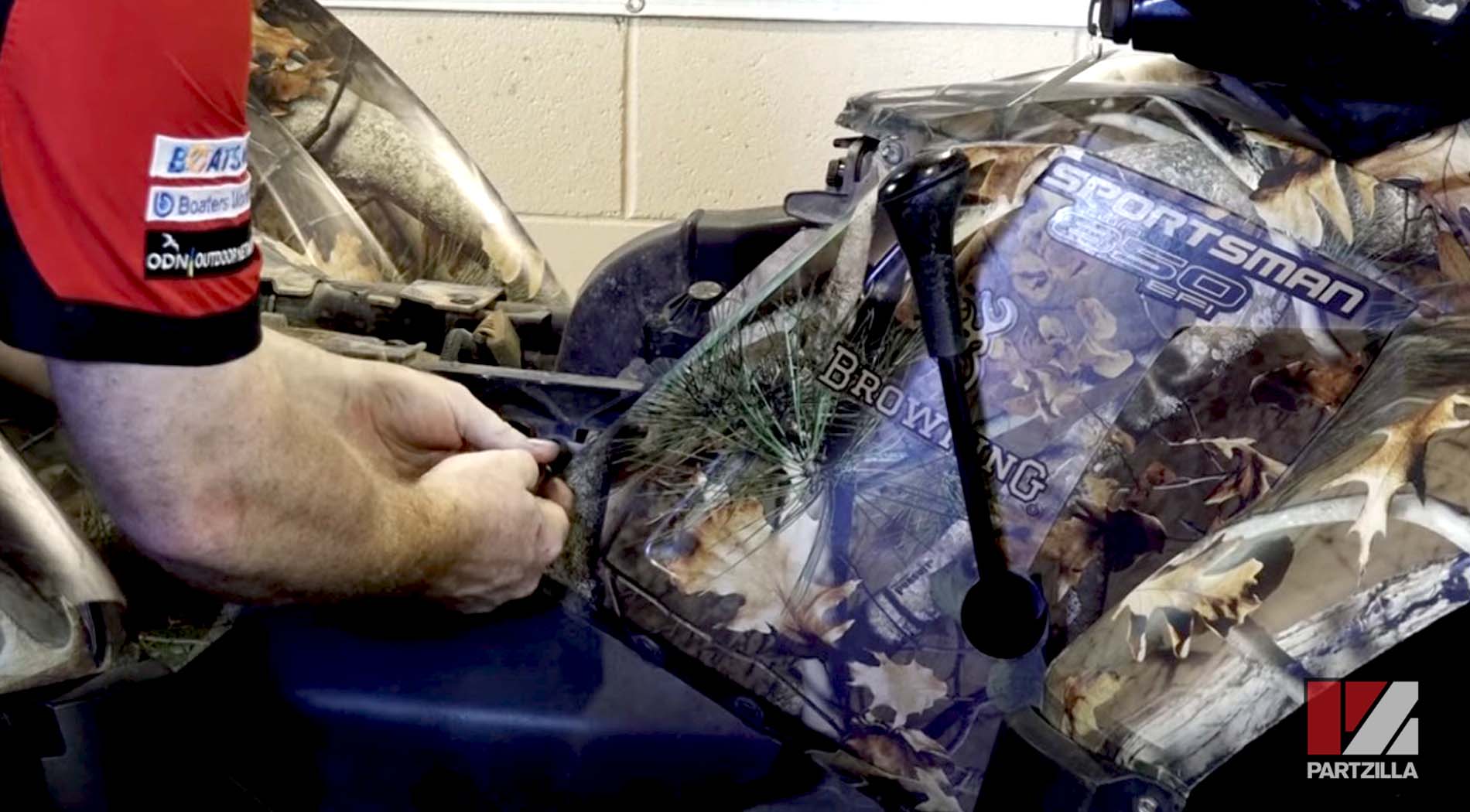
Step 4. Locate the three plastic Tuflok rivets near the bottom of the panel and remove them with a pair of pliers.
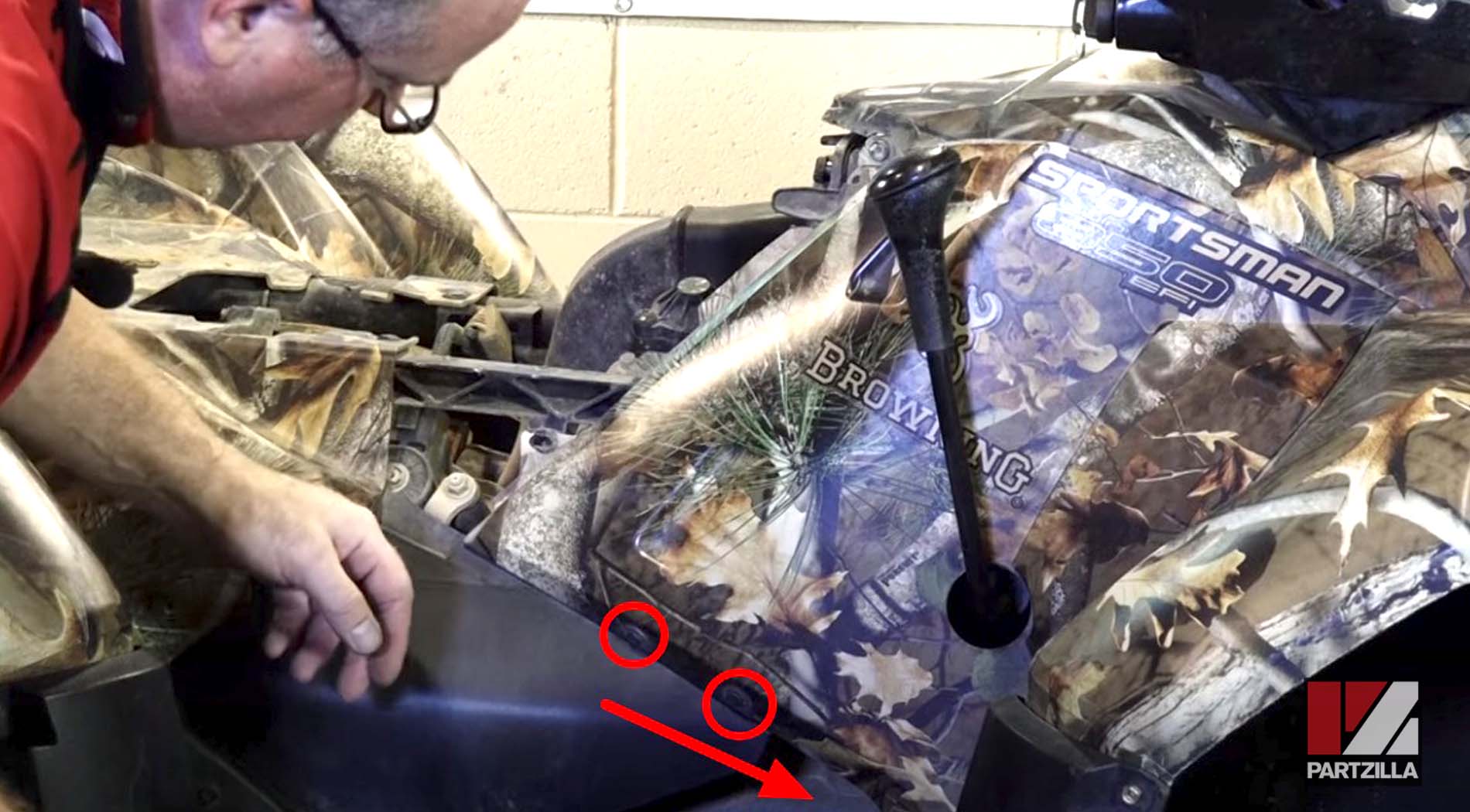
Step 5. Remove the outer cover on the top of the shifter head with a flat-blade screwdriver. Next, loosen and remove the Torx bolt inside to take off the head of the shifter.
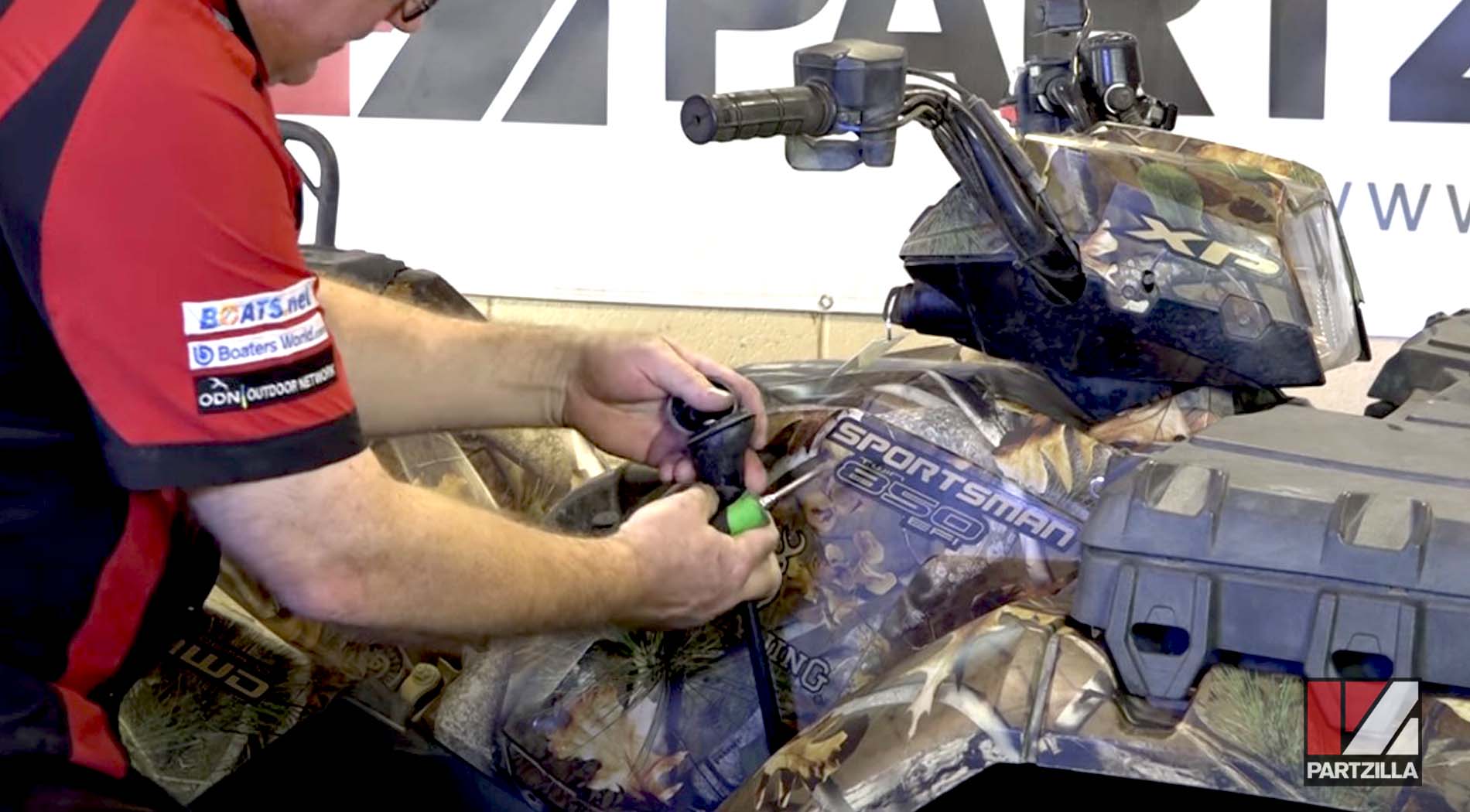
Step 6. Lift the plastic panel up and over the shifter, exposing the plug wires and spark plugs on both the front and rear cylinder. Remove the plug wires.
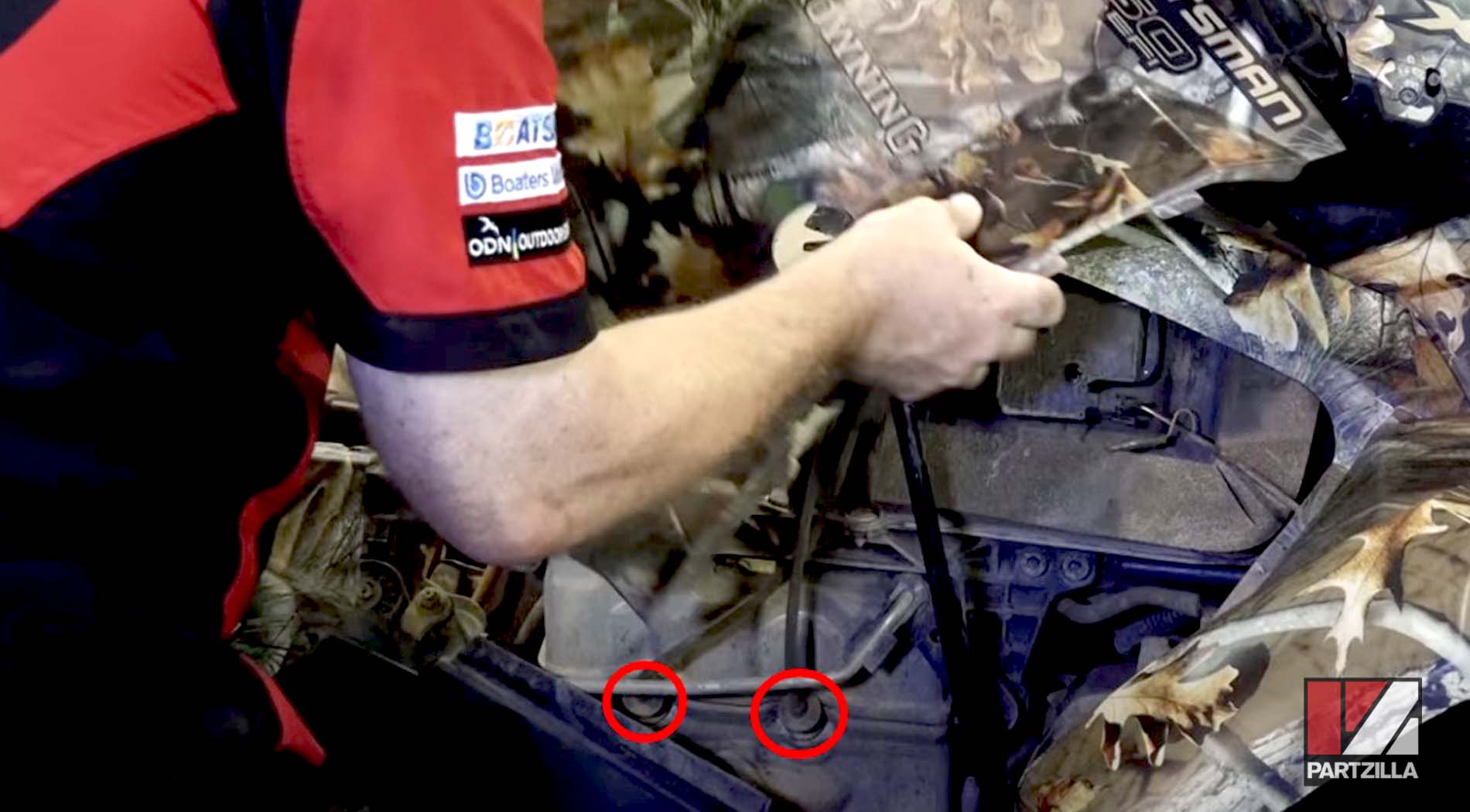
Step 7. Use a thin-walled 14mm socket to loosen the spark plugs on both cylinders, then use a magnet to lift them out.
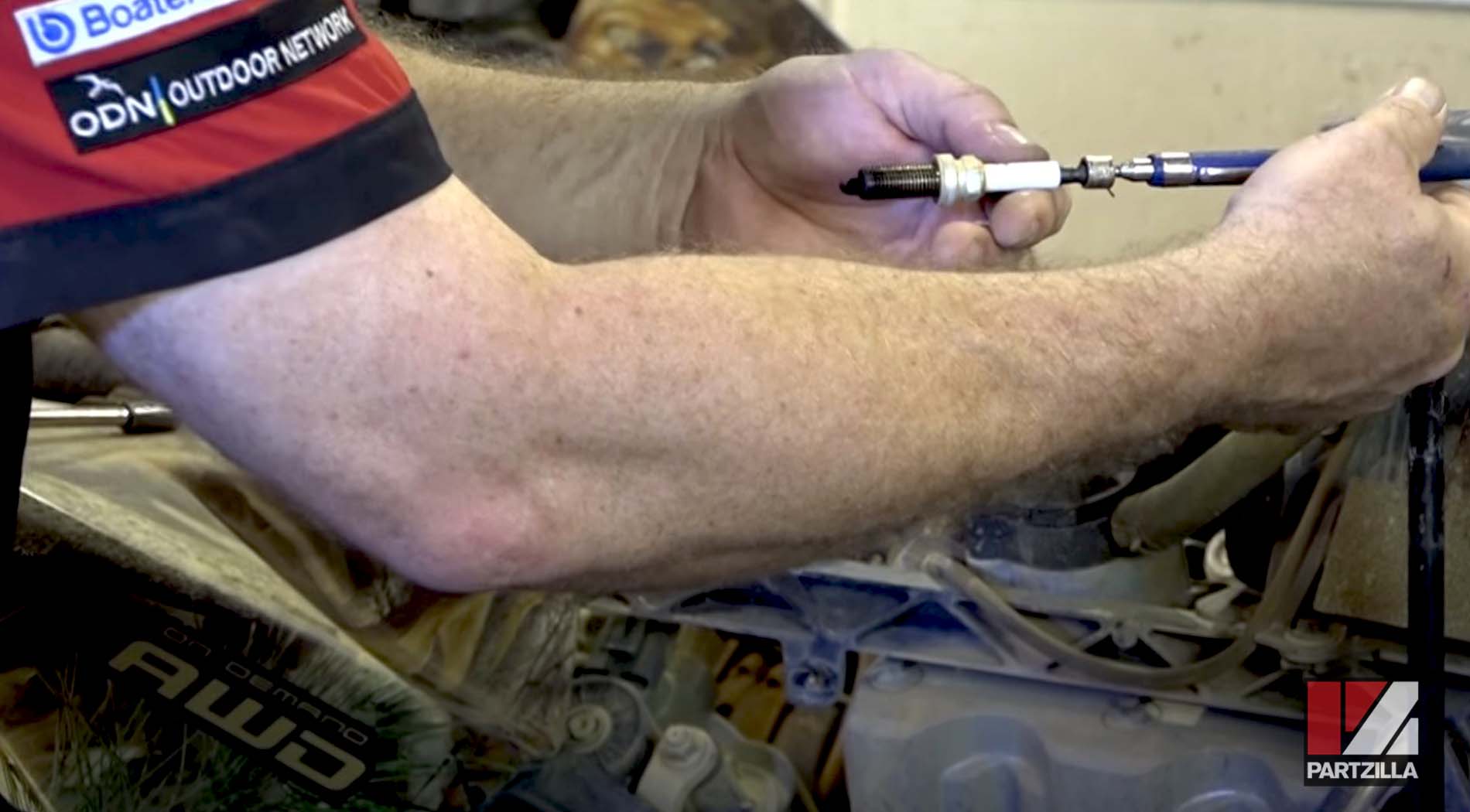
Performing ATV Compression Test
Step 1. Hand tighten the compression tester adapter in place on the front cylinder, then connect the compression tester.
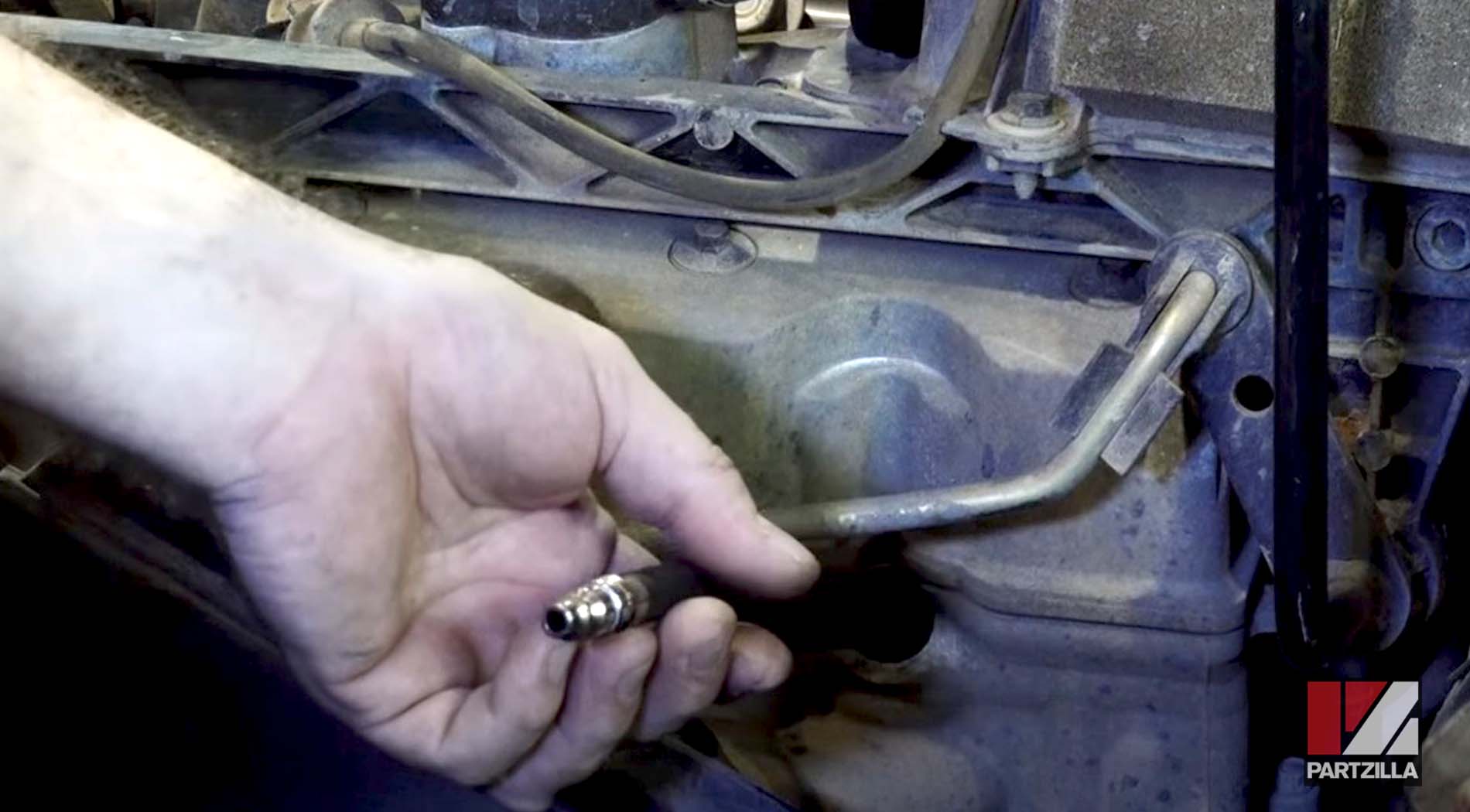
Step 2. Turn the engine over six or seven times with the throttle held open.
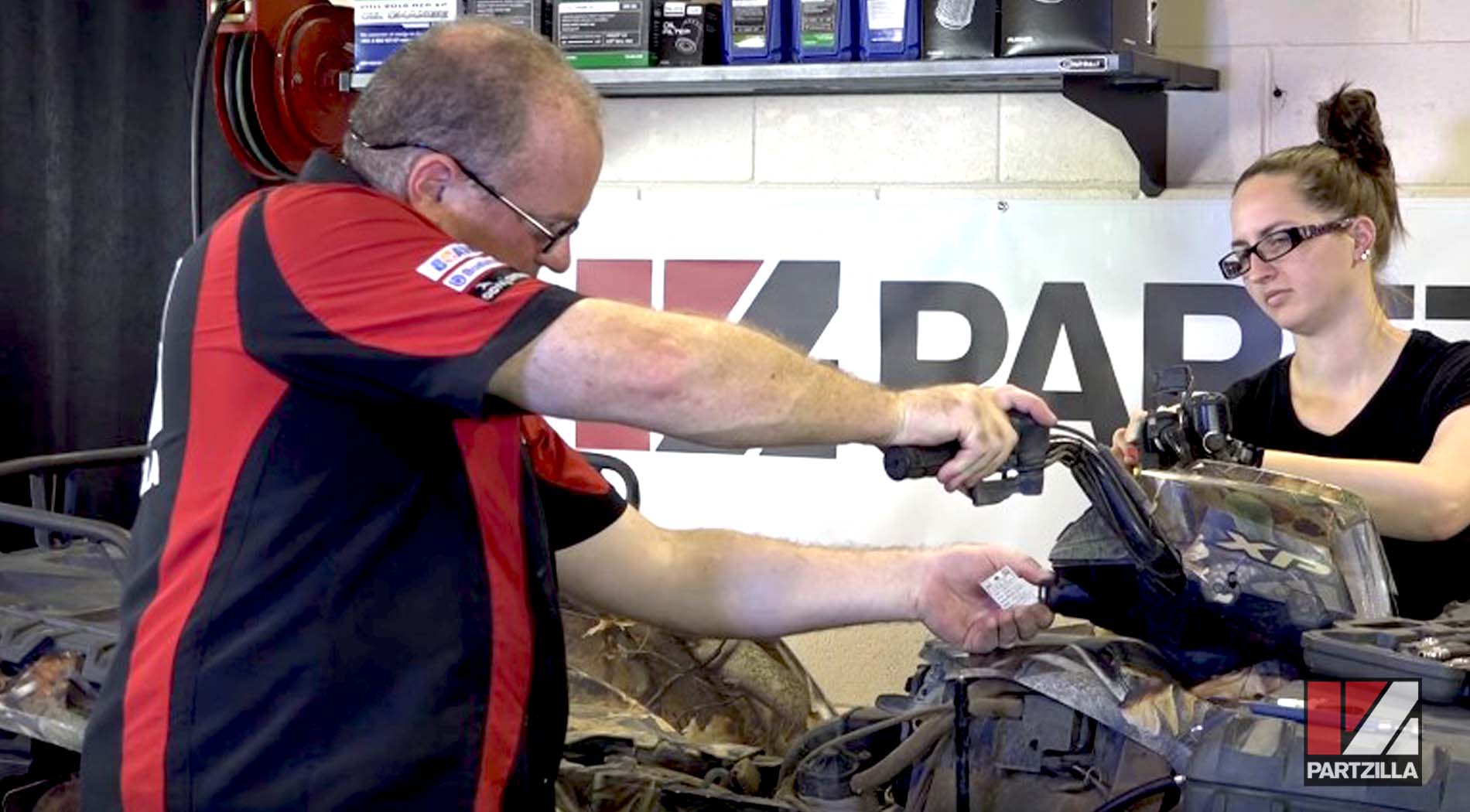
PRO TIP: On the Polaris Sportsman, you have to hold the brake as well, so get someone to give you a hand on the other side.
Step 3. Read the gauge to check the compression.
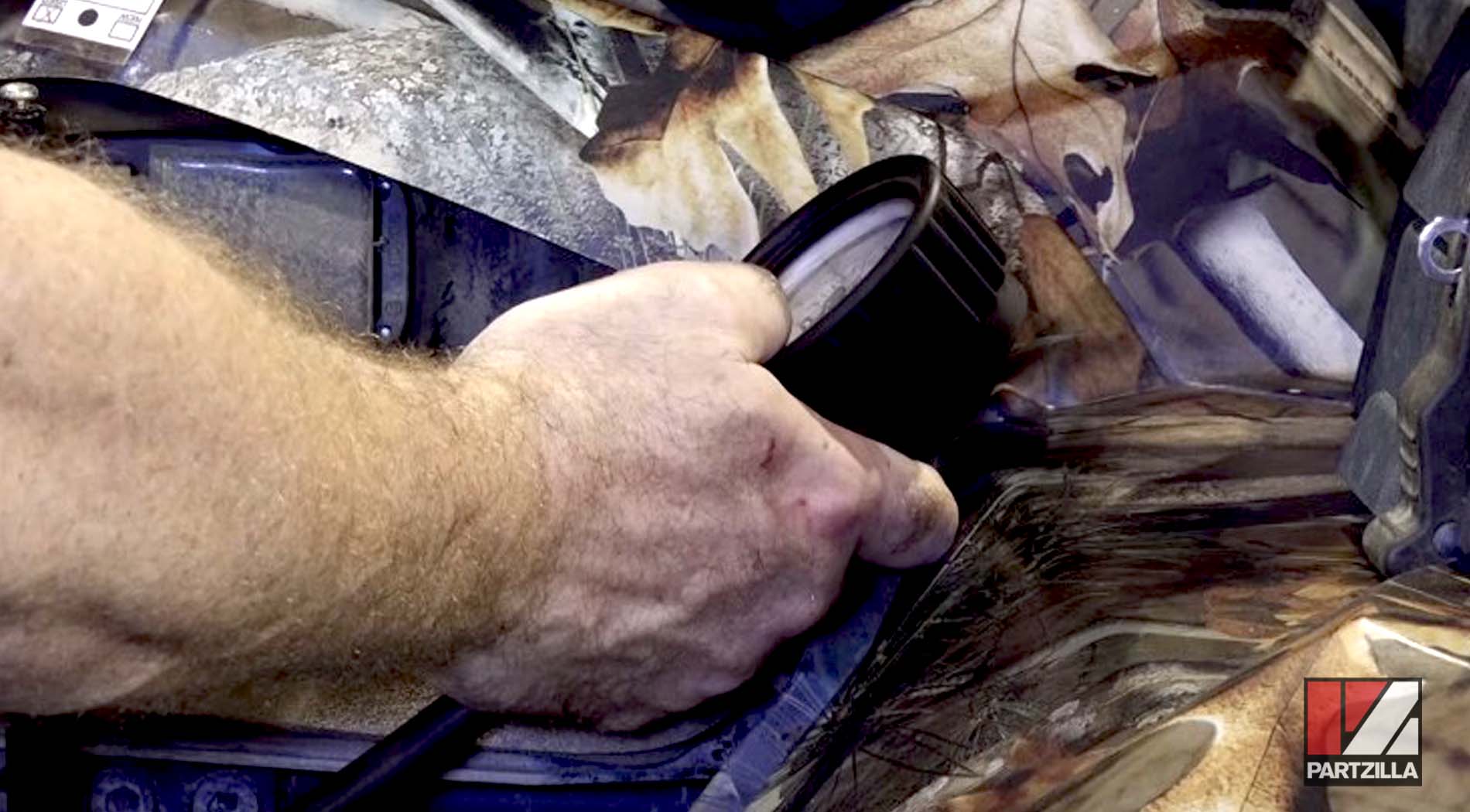
NOTE: The ideal measurements for the test are that each cylinder should be within 10 percent of each other when measuring compression. The overall compression should be between 210 and 250 psi per cylinder.
Step 4. Remove the compression tester and adapter from the front spark plug opening, and screw the adapter in the rear spark plug opening. Connect the compression tester.
Step 5. Turn the engine over six or seven times with the throttle open with someone holding the brake to get the reading for the rear cylinder.


